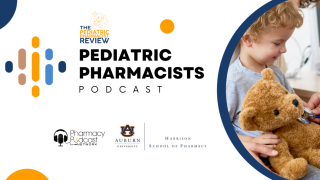Predicting ‘Long COVID Syndrome’ with a Smartphone App

As devastating as this COVID-19 pandemic has been, it’s truly inspiring to see the many innovative ways in which researchers worldwide have enlisted the help of everyday citizens to beat COVID-19, said Dr. Francis S. Collins, the 16th Director of the National Institutes of Health (NIH).
Excerpts from Dr. Collins’s weekly blog continue below.
‘An intriguing example is the COVID Symptom Study’s smartphone-based app, which already has been downloaded 2.6 million times, mainly in the United States and the United Kingdom.
Researchers published a paper last summer showing that self-reported symptoms can predict infection with SARS-CoV-2, the coronavirus that causes COVID-19.
New work from the COVID Symptom Study now takes advantage of the smartphone app to shed more light on Long COVID Syndrome. People experience a constellation of symptoms long past the time they’ve recovered from the initial stages of COVID-19 illness.
Such symptoms can include fatigue, shortness of breath, “brain fog,” sleep disorders, fevers, gastrointestinal symptoms, anxiety, and depression can persist for months and can range from mild to incapacitating.
These latest findings, published in the journal Nature Medicine, come from a team led by Claire Steves and Tim Spector, King’s College London, and their colleagues, and others supported by the Massachusetts Consortium on Pathogen Readiness.
For this particular study, the researchers decided to focus on 4,182 app users, all with confirmed COVID-19, who had consistently logged in their symptoms.
While most people who developed COVID-19 were back to normal in less than two weeks, the data suggest that one in 20 people with COVID-19 are likely to suffer symptoms of Long COVID that persist for eight weeks or more. About one in 50 people continued to have symptoms for 12 weeks or more.
That data suggests Long COVID could potentially affect hundreds of thousands of people in the U.K. alone and worldwide.
The team found that the individuals most likely to develop Long COVID were older people, women, and especially those who experienced five or more symptoms.
The nature and order of symptoms, including fatigue, headache, shortness of breath, and loss of smell, didn’t matter. People with asthma also were more likely to develop long-lasting symptoms, although the study found no apparent links to any other pre-existing health conditions.
Using this information, the researchers developed a model to predict which individuals were most likely to develop Long COVID. Remarkably, this simple algorithm—based on age, gender, and several early symptoms–accurately predicted almost 70 percent of cases of Long COVID.
It was also about 70 percent effective in avoiding false alarms.
Recently, NIH announced a $1.15 billion investment to identify the causes of Long COVID, to develop ways of treating individuals who don’t fully recover, and, ultimately, to prevent the disorder.
We’ve been working diligently in recent weeks to identify the most pressing questions and areas of greatest opportunity to address this growing public health threat.
As a first step, NIH is funding an effort to track the recovery paths of at least 40,000 adults and children infected with SARS-CoV-2 to learn more about who develops long-term effects and who doesn’t. If you’d like to find a way to pitch in and help, getting involved in the COVID Symptom Study is as easy as downloading and using this app,’ concluded Dr. Collins’s remarks.
This app was built in the USA to support the Nurses’ Health Study. This is one of the largest and longest-running scientific studies in the world with 280,000 participants stretching back to 1976.
The COVID symptom study was created by doctors and scientists at Massachusetts General Hospital, the Harvard T.H. Chan School of Public Health, King's College London, and Stanford University School of Medicine, working with ZOE – a health science company.
Francis S. Collins, M.D., Ph.D. was appointed the 16 Director of the National Institutes of Health (NIH) by President Barack Obama. He was sworn in on August 17, 2009.
PrecisionVaccinations publishes research-based news.
Note: updated for name correction.
Our Trust Standards: Medical Advisory Committee

























